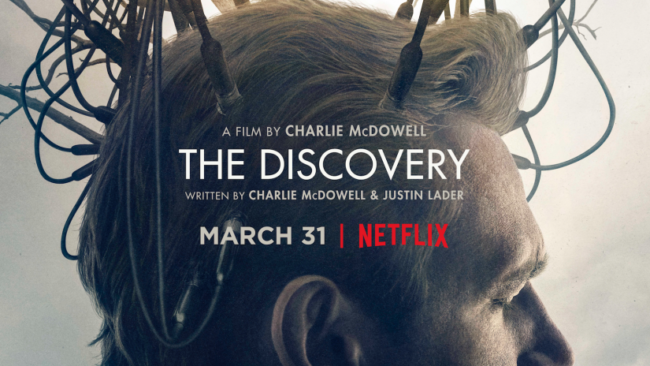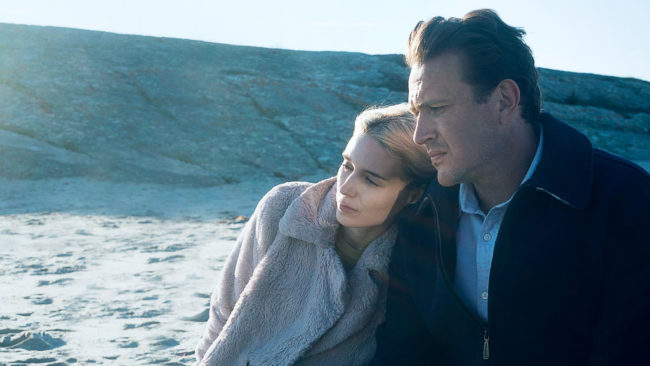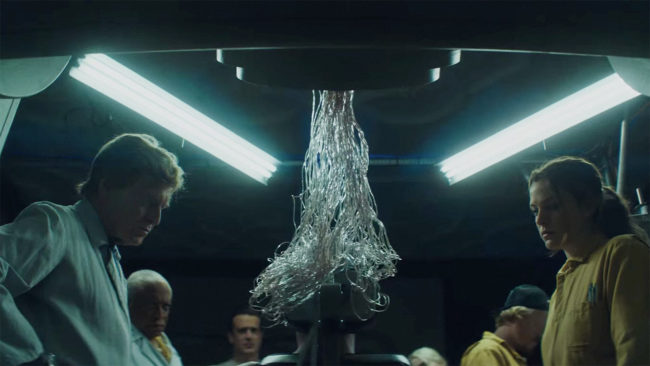The Discovery
The afterlife is one of the burning questions that plague our existence. Does it truly exist? What’s waiting for us on the other side of that ethereal veil? Would it affect your perception if someone presented scientific proof that it did exist?
The Netflix original movie The Discovery gives that very question life. Starring Robert Redford as Thomas Harbor, a scientist who proved the existence of an afterlife, it opens with Thomas doing the first interview he’s ever done since he made what everyone else calls “The Discovery.” He reached out to do the interview only after the number of suicides skyrocketed to a shocking one million. The interview is as tense as it is abrupt. After only a few questions does one of the crew members pulls out a pistol and commits suicide on live television, not before thanking the good doctor for giving him clarity.
Two years later and the death toll reaches a devastating four million lives. Harbor’s son, Will (Jason Segel), is returning home to visit his father. On the ferry ride he meets a woman named Isla (Rooney Mara), and they have an brief discussion on suicide and the afterlife. Once the ferry reaches land, they part ways. Will is picked up by his brother and brought to their father’s compound. Will blames his father for the staggering death toll.
The compound in question is an old mansion and everyone who works there has attempted suicide. For the last two years, Dr. Harbor has been trying to invent a way to record the memories one has upon death. The process is difficult as it requires him to self terminate and be revived quickly. Will is disgusted with his father’s unwavering dedication to show the world “what’s on the other side of the door.” Isla appears again, trying to kill herself by drowning. Despite her protests, he rescues her and convinces his father to put her on the research team.
Will and Isla grow closer as they help Dr. Harbor continue you his research, though Will does so begrudgingly. Things change when Dr. Harbor reveals his invention to record what the dead see in the afterlife. What passes for a brief bit of comedy in this movie is the act of stealing a body from the morgue and subsequently returning it. It’s one of the only moments of sunshine before everyone is marred by tragedy.
The Discovery’s pace is a slow but satisfying burn. There are very few points, if any, that feel like a drag. The story is driven by the broken yet mending characters but it’s a narrow window. We don’t fully get to grasp or really see how the world has changed since an afterlife was confirmed. Our only indication is through LED displays that tick off every confirmed suicide and casual references in the dialogue.
Of the performances in this movie, Jason Segel’s stuck out. It’s reminiscent of his earlier work as a jaded person trying to find meaning in his life after a life-changing event. It’s not a negative performance – since it’s not the story of a blundering man child – it’s his shift to a dramatic performance that makes it acceptable. Robert Redford as the proverbial Captain Ahab works when he’s in the scene, but feels more like he’s portraying a dark cloud rather than a person. Isla seems to fall by the wayside despite being in the foreground for much of the movie.
The plot is not necessarily thick. It’s enjoyable, but it could use more substance. The cinematography is what helps it deliver the impact it makes. The muted colors and video effects enhance the feel of the movie. Overall, The Discovery on Netflix is a must watch. If you’ve been watching the rest of Netflix’s original content, this is something you should move to the front of your queue. It’s a tough watch for those who have struggled with the pain of loss, but it is a good watch.
The Discovery
-
9/10
-
8/10
-
8/10
-
10/10



